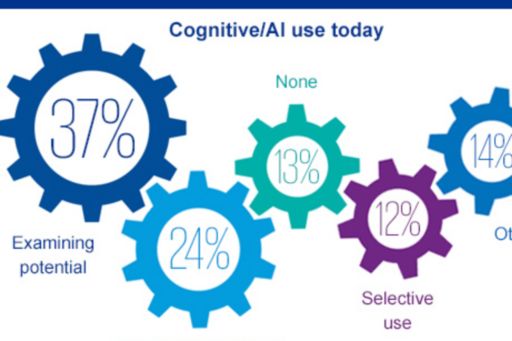Ready, set, fail?
Results from a 2017 KPMG LLP study
When it comes to intelligent automation, are businesses set up for success?

In the race to capitalize on the benefits of intelligent automation, it is clear that global organizations understand just how imperative it will be for the future to keep up. In the coming years, intelligent automation (IA) is poised to affect virtually every industry, and like most similar technologies, the adage is that you must be a disrupter or risk being disrupted.
But are these businesses set up for success, or are they racing to be the first to fail?
That was the question KPMG in the US asked in “Ready, set, fail?”, a 2017 study including 80 industry leaders from North America, Western Europe and Asia Pacific. What we found was a landscape in which IA was on the minds of the vast majority of organizations in various stages.

KPMG LLP, "Ready, set, fail?". 2018
Challenges and Solutions
However, we also found that the these organizations were largely focused on small-scale robotic process automation (RPA) solutions, and that the lack of commitment was attributed to nearly two-thirds saying they had a lack of in-house talent. This, coupled with the half who struggled to define clear goals for deployment, accountability for results and ROI, indicates that the businesses are set...but not ready.
KPMG outlines five key recommendations to prepare for an IA implementation, which are detailed in full in the report.
- Recognize the use of IA is transformative
Companies will need entirely new blueprints for operating and business models. IA isn’t an “add-on,” but a fundamental redesign. - Formulate a comprehensive approach
Approach IA spending holistically across all technology platforms, with linkages between other artificial intelligence applications as well as data and analytics. - Design 2 by 2 structures on automation activities
Examine the trade-offs between preserving value and reducing risk compared with creating value and improving product and service quality. - Consider the “operating model” in all of its forms
Operational and technology infrastructure, organizational structure and governance, and people and culture are all critical to IA deployment. - Think about ways to disrupt business from within
Try and develop a strategy that allows you to transform while maintaining uninterrupted business operations.
KPMG has substantial experience helping businesses overcome the challenges of digital transformation and prepare for the future of intelligent automation. The most important finding, we’ve discovered, is that failing to get ready means failing to implement.
For more on these challenges and solutions, read the full study (PDF 1.29 MB).
